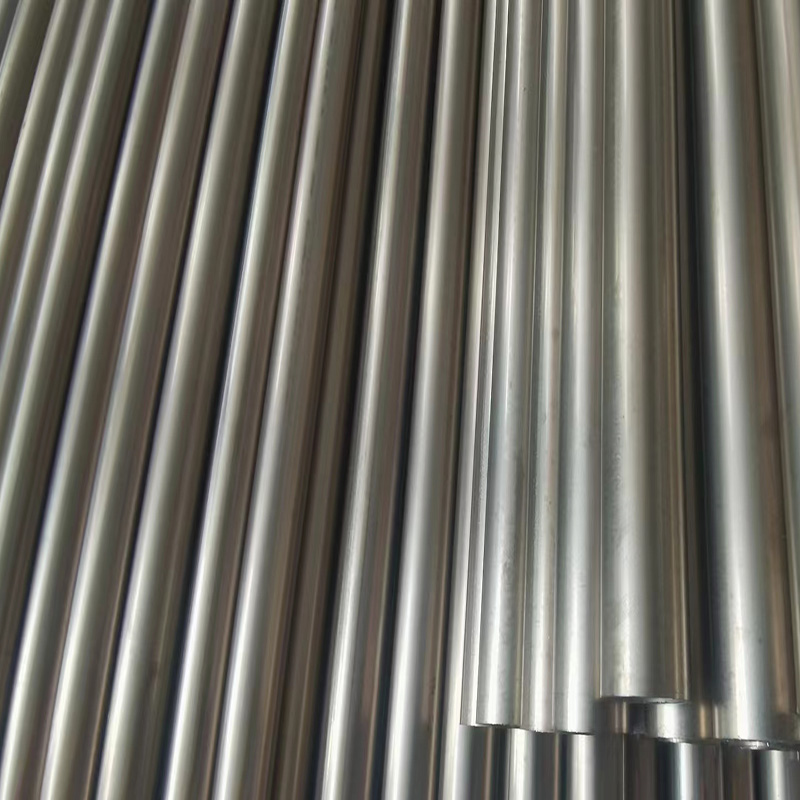Titanium welded tube is widely used in MVR(Mechanical Vapor Recompression) Evaporator
There are many applications of titanium evaporators. Titanium materials are widely used in evaporation systems, chemical systems, chemical equipment, and industrial equipment. Titanium evaporators are also used in high-salt wastewater treatment and saline wastewater treatment.
Let’s take a look at the application of titanium evaporators today.
- Application of titanium material in evaporator
The corrosion resistance of titanium and titanium and its alloys have the characteristics of light weight, high specific strength, and good comprehensive mechanical properties. They are widely used in the aviation field. Because titanium has excellent corrosion resistance, mechanical properties and process properties, titanium materials It is widely used in evaporation industry and wastewater treatment industry, especially in evaporators.

2. Application of titanium in titanium evaporator system
In titanium evaporators, titanium is widely used. Generally, titanium is mainly used in titanium plate heat exchangers, titanium or titanium alloy heating chambers in evaporation systems.
a. Titanium plate heat exchanger. Kang Jinghui owns the patent of plate heat exchanger. Titanium plate heat exchanger is also the most widely used heat exchange equipment at present. It has strong corrosion resistance and good heat transfer effect. At the same time, the quantity can be increased or decreased, which is convenient for maintenance and occupies a small area. features.
b. Titanium and titanium alloy heating chamber. Titanium is corrosion resistant. Under normal circumstances, titanium will not undergo pitting corrosion, intergranular corrosion and stress corrosion. Using a titanium alloy heating chamber can avoid the cycle of pipe plugging, scaling, flushing and replacement of equipment.
3. Titanium three-effect evaporator process introduction
a. Process principle of three-effect titanium evaporator
Three-effect evaporation is an evaporation operation in which three evaporators are operated in series, so that the heat energy of the steam can be utilized multiple times, thereby improving the utilization rate of heat energy, and it is mostly used for the treatment of aqueous solutions. In the process of three-effect evaporation operation, the first evaporator (called the first effect) uses raw steam as the heating steam, and the rest of the evaporators (called the second effect and the third effect) use the raw steam as the heating steam. The secondary steam is used as heating steam, which can greatly reduce the consumption of raw steam.
b. Process flow of three-effect titanium evaporator
The feed liquid is heated in the heat exchange tube of the heater by the steam outside the heat exchange tube to raise the temperature. Under the action of the circulation pump, the material rises into the evaporating separator, and the material evaporates due to the drop of the static pressure of the material, and the evaporation produces secondary steam overflowing from the material liquid, and the material is concentrated to produce supersaturation, which causes crystal growth and removes the supersaturated material Enter the forced circulation pump, and enter the heat exchanger under the action of the circulation pump. The material is continuously evaporated and crystallized in this way, so as to realize the separation of substances, achieve the purpose of purifying chemical substances and obtaining chemical products.
Titanium evaporators, like other evaporators, are used for evaporation concentration and evaporation crystallization of solutions. Titanium evaporators are mainly suitable for evaporation and crystallization of solutions with crystals precipitated. They are widely used in chemical industry, metal mining smelting, large-scale Pickling waste liquid in steel mills, wet desulfurization waste liquid treatment in power plants, etc., such as: (sodium chloride, phenylalanine ammonium acid, sodium sulfate, ammonium chloride, glycammonium acid; barium chloride, zinc sulfate, chloride Calcium, Ammonium Sulfate, Sodium Hydroxide)

